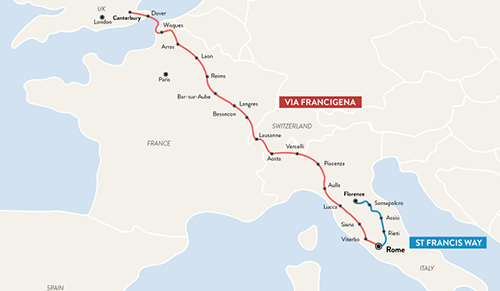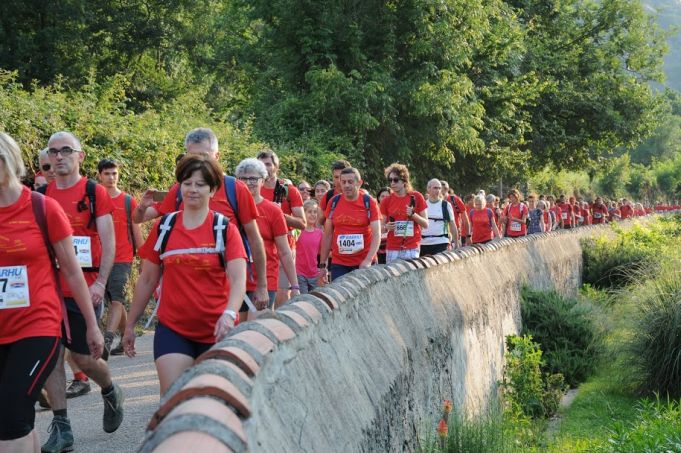In the Middle Ages, it was the road that brought pilgrims from Canterbury to Rome.
The Italian section today is a journey through some of the most fascinating places in the boot. On foot, you don’t need much, in fact very little is enough.
All that is required for this trip is a comfortable pair of shoes. And one of those light backpacks, not too big to hold a camera, a well-detailed map, and if you want, a notebook to mark down your impressions. Well, maybe you’d better keep a poncho and some band- aids for blisters in a backpack pocket, just in case…
A History of 1,000 years and 2,000 km

There is not only one Francigena, but as many as the countries it crosses. AEVF, the European Association of the Via Francigena, organized them together, offering information on itineraries to follow, and on the reception facilities that can be found along the way. You can also download the App of the Francigena, follow the route on an interactive map or search for the trip that best suits your needs.
Also Read:
- Monteriggioni in Tuscany
- San Gimignano: A town of fine towers
- The Conero Regional Natural Park
- 13 Most Beautiful Places on the Amalfi Coast
- Most Beautiful Castles in Abruzzo
- Visiting Val d’Orcia: our two day guide
On foot or by bike? Or are you ready for the marathon…

Traveling with your taste buds

On www.viefrancigene.org/it/ you will find an entire list of D.O.P. accredited products and manufacturers. In short, even the most gluttonous have no excuse: it's time to get going!
Good to know: The Via Francigena is divided into stages, and each stage is around 20 km a day. The Cisa pass and the San Bernardo hill are the highest points of the road. It is a good idea to buy the "Credential" document that certifies the journey, and that will allow access to accommodation facilities.
General Info
View on Map
The Via Francigena, an ancient pilgrim route
Via Francigena, 53022 Buonconvento SI, Italy




















